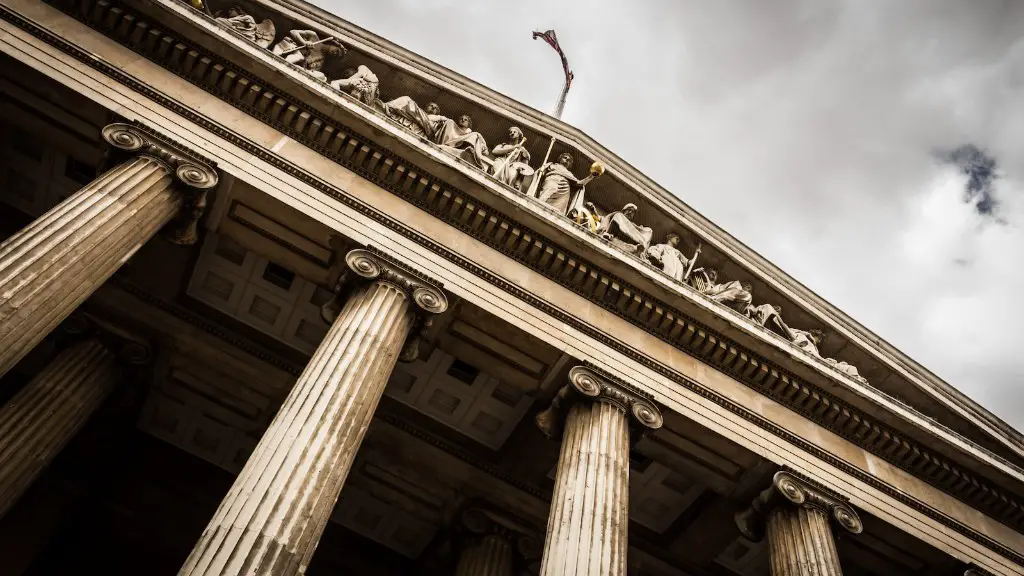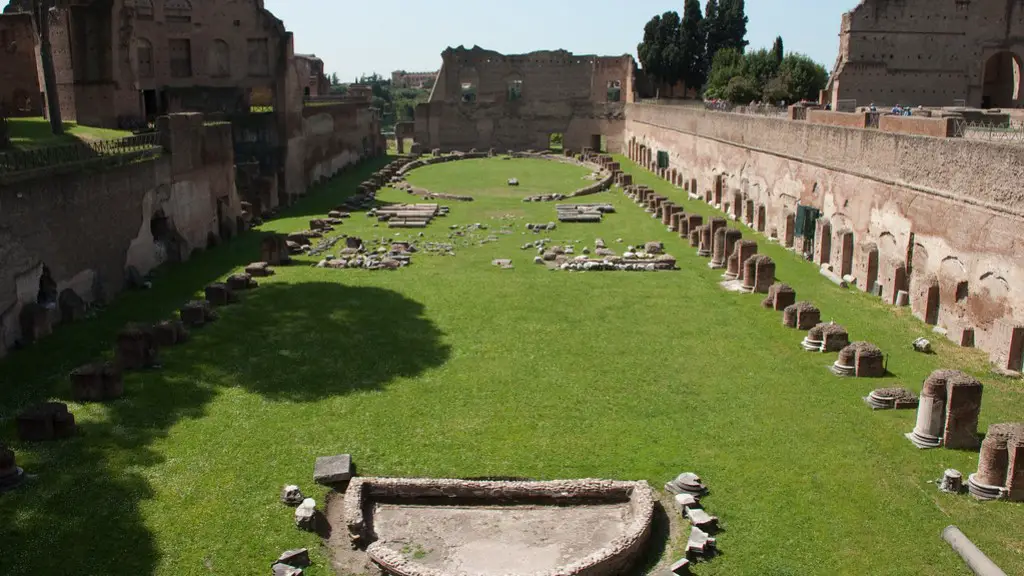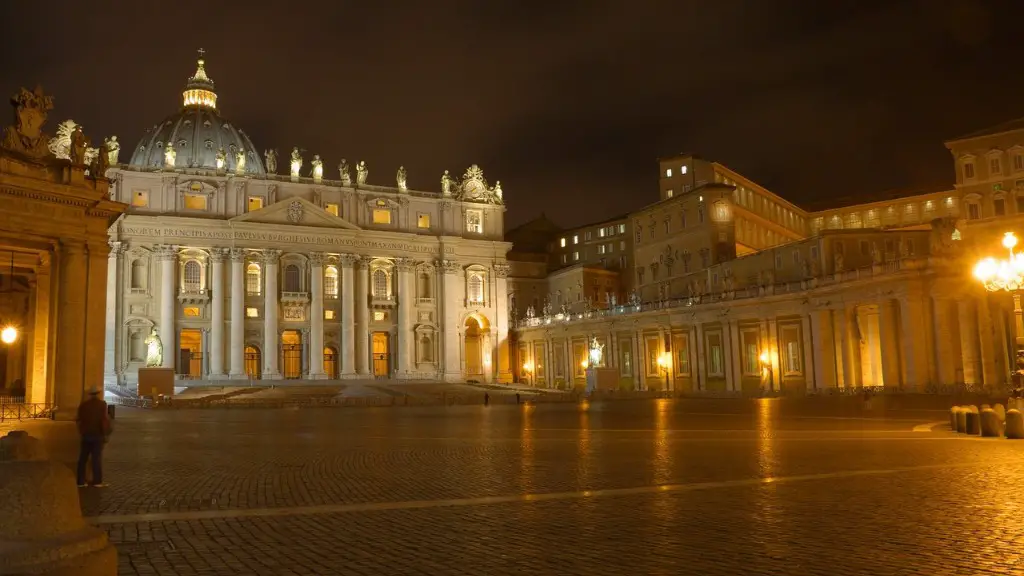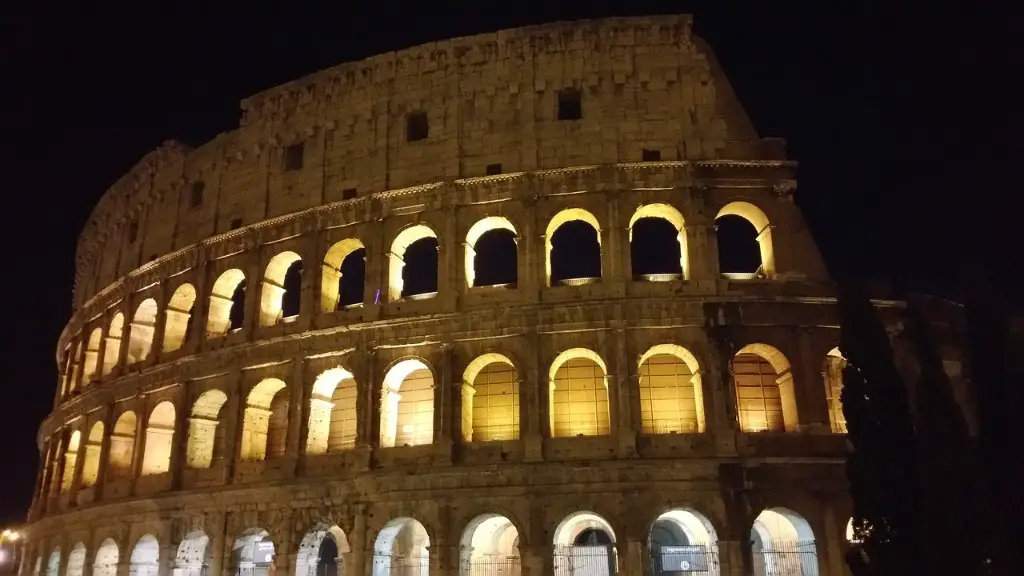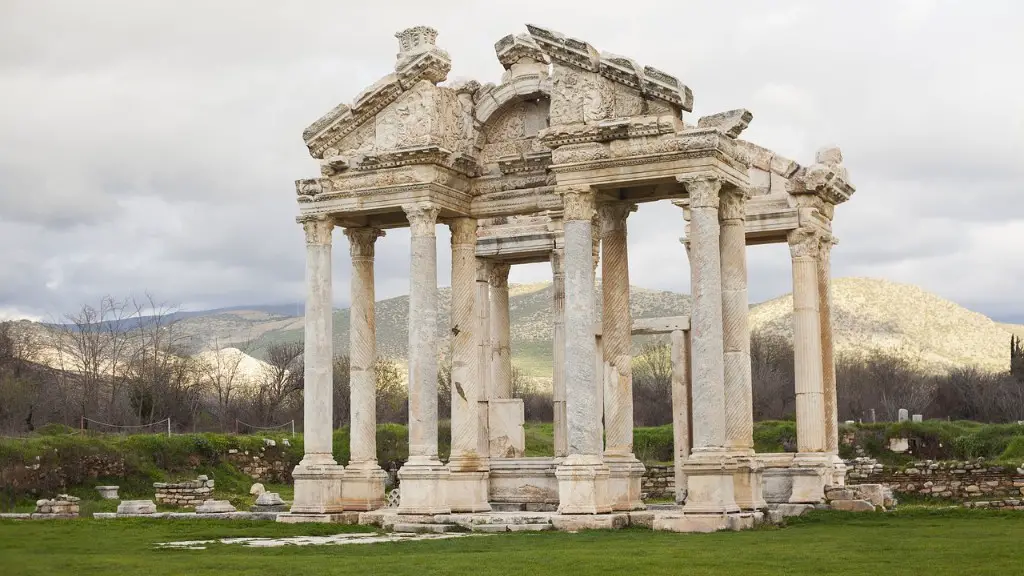The Roman Pantheon of gods and goddesses played a major role in the religious beliefs of people in Ancient Rome. The ancient Roman religion, also known as the Roman mythology, was a complex system in which gods and goddesses were worshipped, along with various rituals and festivals that celebrated the gods. The foundation of the Roman religious belief system can be traced back to the worship of the gods and goddesses of the early Indo-European people, who are believed to have inhabited the geographic region that was later to become the Roman Empire. From this foundation, the early Romans developed a rich and multi-leveled system of gods and goddesses with unique traits, powers and areas of dominion, as well as a complex set of religious ceremonies and rituals.
The main gods and goddesses worshipped by the Romans were Jupiter, Juno, and Minerva, who were collectively known as the Capitoline Triad. Jupiter, or Jove, was the chief god, and his domains included sky, law, and justice. He was the god of thunder, leader of the sky, and protector of the law. Juno, or Juno Moneta, was the goddess of marriage, motherhood, and fertility. She was the wife of Jupiter and the protector of homes and families. Minerva was the goddess of wisdom and war, and she was the daughter of Jupiter and the protector of cities. Other major gods and goddesses of the Roman pantheon included Mars, the god of war, Neptune, the god of the sea, and Mercury, the messenger god.
In addition to the gods and goddesses, the ancient Romans also worshipped various lesser deities and spirits, including the Lares and Penates, the gods of the home; Janus, the protector of doorways and gates; and Tiberius, the god of rivers. An important part of Roman religious belief was the veneration of the ancestral spirits, known as manes. These spirits were believed to bring health and fertility to the household if they were properly respected and honored. The dead were also believed to possess special powers, as they were believed to be closer to the gods than living mortals.
The Romans believed that proper veneration of their gods was necessary to maintain balance and harmony in the universe. Thus, they held special festivals and celebrations throughout the year to pay respects to their gods. These festivals included games, sacrifices, and processions. Each god and goddess had its own special day, but the most important feast days were the Saturnalia and the Lupercalia, which honored Jupiter and Mars. Important temples, called ‘fanums’, dedicated to the gods and goddesses were also built throughout the Roman Empire.
The practice of state religion in Rome did not always adhere to its traditional beliefs, however. During the early Republic, the Romans converted to monotheism and established a state religion centered around the worship of Jupiter as its sole deity. Then, during the Imperial period, state religion shifted towards a polytheistic form of worship, and certain foreign gods, such as Isis and Mithras, were incorporated into the Roman pantheon. This syncretism of various religious traditions served to create a more diverse and tolerant god-set for the Roman people.
Nevertheless, the traditional Roman belief system remained popular for many centuries after the fall of the Roman Empire. Even today, vestiges of the religion can be found in various cultures around the world, and the gods and goddesses of the Roman pantheon have inspired many works of art, literature, and music.
The Importance of Roman Mythology
Roman mythology was an essential part of the Roman culture and society. It provided a way for the common people to communicate and interact with the gods, and it established a special bond between the gods and their followers. It also allowed the Romans to view their world in an organized and meaningful way, providing them with an understanding of their place in the universe and their relationships with the gods.
Moreover, the gods and goddesses of the Roman pantheon were models of morality, justice, and integrity. These principles formed the basis of Roman law and were seen as essential elements of a functioning and harmonious society. Through these laws, the people of Rome were given an understanding of proper behavior and the consequences of wrong-doing.
Roman mythology also served as an important source of inspiration for many of Rome’s greatest works of literature, art, and architecture. The temples and monuments that remain from the ancient world echo the glories of the gods and goddesses in whom the Romans believed. The Roman pantheon also features prominently in Roman mythology, providing readers and viewers with an understanding of the gods, goddesses, and belief systems of the ancient world.
The Decline of Roman Religion
Though Roman religion remained a powerful force in the Roman world for many centuries, it began to decline after the fall of the Roman Empire. With the rise of Christianity and its competition with the traditional Roman gods, the old belief system gradually lost its hold over the people of Rome. By the Medieval period, most of the Roman gods and goddesses had been replaced with the saints and relics of Christianity.
The Roman religion also experienced persecution by the Roman Empire. After the Edict of Milan in 313 CE, edicts were issued against pagan cults and temples were destroyed by the Roman authorities. This persecution pushed the old Roman belief further into the shadows, and eventually, it was entirely replaced by the new Christian religion.
However, in spite of the decline of the Roman religion, its influence remains evident in the modern world. The gods and goddesses of the classical Roman pantheon have been revived in various forms in literature, art, and film. Additionally, the concepts of justice, law, truth, and honor that were embedded in the religion have survived in many societies around the world today, providing a lasting legacy of the beliefs and values of the ancient Roman religion.
Modern Influence and Significance of Ancient Rome Religion
The ancient Roman religion has had a profound impact on the modern world, and its legacy is still felt today. Roman mythology remains a popular subject in literature, film, and art. It has also inspired many works of literature and literature, including Ovid’s Metamorphoses, Virgil’s Aeneid, and Dante’s Divine Comedy.
The importance of the Roman gods in the Roman public life also survives in modern society, as seen in its use in political debate. The Roman gods and goddesses have been used to support various political points of view, from the rule of law to liberty and justice. Some of the features of the Roman pantheon have been adapted for political purposes in the modern world, such as the concept of ‘Fortuna’, which has been used to refer to luck or fortune in high-level political decision-making.
Lastly, the influence of the Roman religion on modern culture and society can be seen in its symbolism. In today’s world, symbols of the gods and goddesses of the Roman pantheon are widely used as decorations and symbols of patriotism in various countries, while their mythology is used to convey religious and philosophical messages.
Conclusion
The Roman religion was an important part of the culture and society of the ancient world. It provided them with a way to interact with the gods, a way to view the world and their place in it, and a set of laws and principles to live by. The gods and goddesses of the Roman pantheon, their mythology, and their values have had a lasting influence on the modern world, providing a source of inspiration for many works of art and literature, inspiring political debate, and influencing our understanding of justice, law, and honor.
